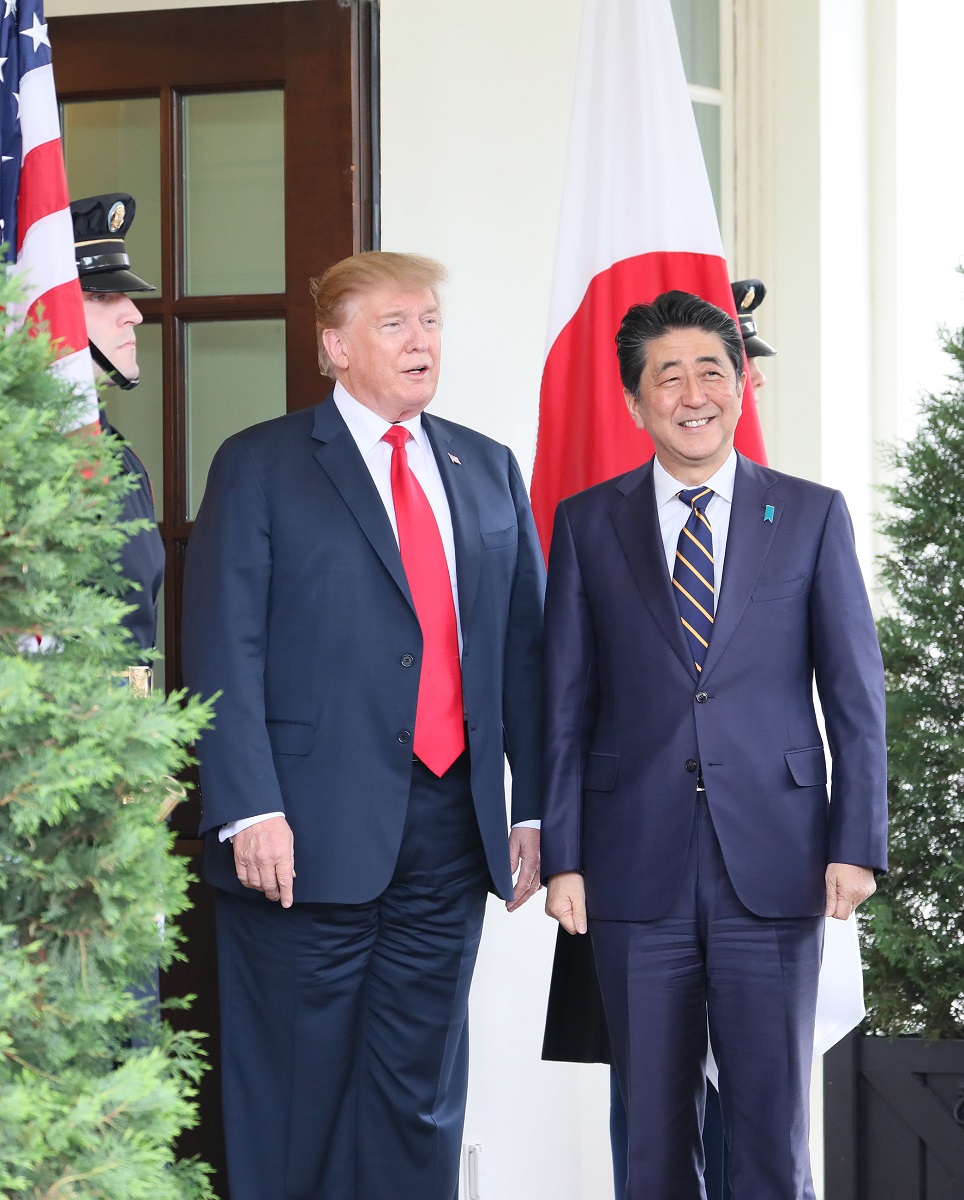Trump, Abe Reach New Trade Deal on Agricultural Products
President Donald Trump and Japanese Prime Minister Shinzo Abe signed a partial trade deal in New York. (Wikimedia Commons)
President Donald Trump signed a partial trade agreement with Japanese Prime Minister Shinzo Abe to lower Japanese tariffs on U.S. farm exports such as beef and pork and facilitate digital commerce on September 25.
In return, the U.S. promised to reduce or eliminate tariffs on a variety of industrial products, such as machine tools, steam power turbines, musical instruments, and bicycles.
According to the Office of the U.S. Trade Representative (USTR), the implementation of this agreement will allow 90 percent of U.S. agricultural products imported into Japan to either be duty free or receive preferential tariff access.
Additionally, a separate agreement laying out a set of “high standard, comprehensive” provisions for digital trade has forbidden tariffs on cross-border digital downloads. The deal also eliminates data localization rules, which require data to be stored inside a country before being transferred internationally.
The two leaders met on the sidelines of the United Nations General Assembly in New York. Trump lauded the interim agreement as “a tremendous trade deal.” Similarly, Abe expressed his optimism, remarking that “by having this [sic] first- and third-largest economies coming to the table … we will be able to have a wonderful, positive impact on the global economy.”
However, the successful negotiations did not explicitly mention the controversial Section 232 tariffs that Trump has previously threatened to levy on Japanese automobiles and which experts say could be a serious blow to the Japanese car industry. According to the Congressional Research Service, this type of tariff is intended to restrict certain imports that might threaten national security interests. Although current Section 232 tariffs primarily target “global overcapacity in steel and aluminum production” driven by China, the U.S. has considered extending the tariffs’ use to restrict automobile imports. Automobile and car part imports from Japan are the largest component of America’s $67 billion trade deficit with the island nation, and Trump has expressed concerns about how Japanese imports can put American automakers at a disadvantage.
Nevertheless, Abe appears reassured. At a news conference, he said that “between President Trump and I, myself, this has been firmly confirmed that no further, additional tariffs will be imposed.” USTR Ambassador Robert Lighthizer corroborated Abe’s claim, telling reporters that “it is certainly not our intention … to do anything on autos.”
This agreement will likely come as a relief for U.S. farmers hard-hit by Trump’s trade wars because it could boost their export competitiveness. As a result of the president’s trade policy, China has levied retaliatory tariffs on American pork and soybeans. Additionally, after Trump’s withdrawal from the Obama-era Trans-Pacific Partnership (TPP), the other 11 nations in the organization, including Japan, have given each other preferential market access, putting U.S. beef and pork producers at a relative disadvantage.
David Herring, the leader of the National Pork Producers Council, believes that the new trade deal can potentially increase the competitiveness of U.S. farmers in the Japanese market.
"Once implemented, the agreement signed today puts U.S. pork back on a level playing field with our competitors in Japan," he said.
Other leaders of U.S. agricultural organizations also expressed cautious optimism about the prospects of this partial agreement. Zippy Duvall, who serves as the president of the American Farm Bureau Federation, stressed the importance of the country’s integration in the international market for farmers. "What we need in the future is more agreements like this all around the world," he said. "What we need is trade. That's what makes rural America grow."

